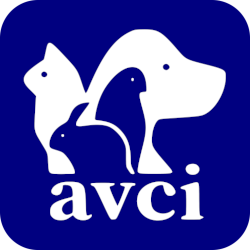SECTION 12: CONFLICT OF INTEREST POLICY
I. Purpose
The purpose of this Conflict of Interest Policy is to protect the integrity and reputation of AVCI Veterinary Practice by ensuring that business decisions are made in the best interests of the company and its stakeholders.
Employees, directors, contractors, and other agents of AVCI must avoid activities or relationships that create a conflict between their personal interests and the interests of AVCI. Any individual who engages in unauthorized self-dealing, financial misconduct, or actions that compromise AVCI’s ethical and business standards may be subject to disciplinary action, including termination and legal proceedings.
This policy is designed to comply with:
• The Labor Code of the Philippines (PD 442) – Governs employment obligations, ethical conduct, and disciplinary procedures.
• Republic Act No. 6713 (Code of Conduct and Ethical Standards for Public Officials and Employees) – Establishes ethical guidelines for employees in decision-making roles.
• Republic Act No. 3019 (Anti-Graft and Corrupt Practices Act) – Prohibits self-dealing, bribery, and financial misconduct.
• Republic Act No. 11232 (Revised Corporation Code of the Philippines) – Regulates corporate governance, conflicts of interest, and financial transparency.
• Republic Act No. 10667 (Philippine Competition Act) – Prevents unfair business practices that distort competition.
• Republic Act No. 10173 (Data Privacy Act of 2012) – Ensures confidentiality of business and client information.
II. Definitions
1. Employee – Any person employed by AVCI in a full-time, part-time, contractual, or probationary capacity, as governed by the Labor Code of the Philippines.
2. Agent – Any owner, director, stakeholder, contractor, consultant, or third party that is authorized to represent or act on behalf of AVCI.
3. Conflict of Interest – Any situation where an individual’s personal interests, relationships, or financial activities interfere with AVCI’s business interests. This includes:
◦ Self-dealing – When an individual benefits from transactions with AVCI at the company’s expense.
◦ Competing Business Interests – When an employee or agent has an interest in a competitor’s business or engages in side-businesses that compete with AVCI.
◦ Nepotism – Favoring relatives or close associates in hiring, promotions, or contracts.
◦ Misuse of Information – Using confidential business, client, or veterinary service information for personal gain or external benefit.
4. Financial Interest – Any direct or indirect financial benefit an individual may have in AVCI’s monetary transactions, contracts, or business dealings.
III. Disclosure of Potential Conflicts of Interest
1. Duty to Disclose
◦ All employees and agents must immediately disclose any potential conflicts of interest to the Board of Directors or Management.
◦ Disclosure must be made in writing, detailing the nature of the conflict, the parties involved, and any potential business impact.
2. Annual Disclosure Requirements
◦ Employees and directors must submit an annual conflict of interest declaration, confirming any potential conflicts or affirming that no conflicts exist.
3. Failure to Disclose
◦ If an employee or agent fails to disclose a conflict of interest and it is later discovered, they may face disciplinary action, including termination and possible legal consequences.
IV. Investigating Potential Conflicts of Interest
1. Review and Assessment
◦ When a potential conflict is reported, the Board of Directors and Management will:
▪ Collect all relevant documentation and information.
▪ Interview concerned parties to determine the extent of the conflict.
▪ Determine whether an actual conflict exists or if it is a perceived but manageable risk.
2. Deliberation and Decision-Making
◦ If an actual conflict of interest is found, the board will:
▪ Review all transactions related to the conflict.
▪ Notify affected stakeholders within and outside AVCI (employees, directors, suppliers, or clients).
▪ Assess whether financial damage occurred and determine corrective actions.
3. Excusal from Deliberations
◦ If a conflict of interest involves a director or senior executive, they will be excused from discussions and decision-making regarding the issue.
V. Addressing Conflicts of Interest
1. Corrective Actions
◦ If a transaction is found to be affected by a conflict, AVCI may:
▪ Cancel or modify the transaction.
▪ Require reimbursement for financial losses caused by the conflict.
▪ Restrict the employee or agent’s involvement in future transactions.
2. Preventive Measures
◦ AVCI will implement internal controls to prevent conflicts, such as:
▪ Rotation of financial roles to avoid favoritism or fraud.
▪ Mandatory financial oversight for large transactions.
▪ Independent audits to review potential conflicts of interest.
VI. Prohibited Activities
To prevent conflicts of interest, AVCI strictly prohibits employees and agents from engaging in:
1. Self-Dealing and Undisclosed Business Transactions
◦ Employees may not own, operate, or have financial interests in businesses that directly compete with AVCI.
◦ Employees are prohibited from using AVCI’s veterinary resources, supplies, or services for personal or outside business ventures.
2. Nepotism and Preferential Treatment
◦ Employees may not favor family members or close friends in hiring, promotions, or contract awards without full disclosure and approval.
◦ Any hiring of relatives or close associates must be reviewed by the Board of Directors.
3. Misuse of Confidential Information
◦ Employees may not disclose or use AVCI’s internal business information for personal financial gain.
◦ Sharing client records, supplier agreements, or veterinary pricing structures with outside parties is strictly prohibited under RA 10173 (Data Privacy Act of 2012).
4. Bribery and Kickbacks
◦ Employees are prohibited from accepting bribes, gifts, or kickbacks from suppliers, contractors, or clients in exchange for preferential treatment.
◦ Violations may result in termination and legal action under RA 3019 (Anti-Graft and Corrupt Practices Act).
VII. Disciplinary Actions for Violations
1. Types of Disciplinary Actions
◦ Violations of this policy may result in progressive disciplinary actions, including:
📌 Legal Compliance: Serious violations may lead to civil and criminal liability under RA 3019 (Anti-Graft and Corrupt Practices Act) and RA 10667 (Philippine Competition Act).
VIII. Policy Review and Amendments
• This policy will be reviewed annually to align with Philippine business laws and AVCI’s operational needs.
• Employees will be informed of any updates and required to sign a compliance acknowledgment form.
Back to Manual of Company Policies.

